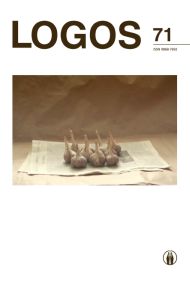Argumento Už Ontinį Asmenų Paprastumą Kritinė Analizė
A Critical Analysis of the Argument for the Ontological Simplicity of the Self
Author(s): Marius GrigonisSubject(s): Epistemology, Individual Psychology, Psychology of Self, Ontology
Published by: Visuomeninė organizacija »LOGOS«
Keywords: E. J. Lowe; person; body; proper part; organism; sum; simplicity; argument;
Summary/Abstract: In a number of his essays E.J. Lowe presented an interesting argument for the ontological simplicity of the self. This argument had become the subject of Eric T. Olson’s polemic reaction, who was trying – unsuccessfully – to discover a formal mistake in the argument. Eventually, the modified and improved version of Lowe’s reasoning came out in his paper Identity, Composition, and the Simplicity of the Self. It seemed that the argument for the ontological simplicity of the self has resisted criticism. In my paper I am going to present a few manoeuvres which can be used by advocates of animalism to dismiss conclusions from Lowe’s argument. An animalist may want to do that because of a simple reason: on animalism it is difficult to argue for the simplicity of the self thesis, as persons are – according to animalism – human organisms, it means composite objects. My analysis is going to show that the simplicity argument – although remains formally valid – is not sound in the light of proven difficulties and shortcomings. This enables me to insist on an animalistic interpretation of the subject, according to which the self is a composite material object, identical with a living human organism.
Journal: LOGOS - A Journal of Religion, Philosophy, Comparative Cultural Studies and Art
- Issue Year: 2012
- Issue No: 71
- Page Range: 43-50
- Page Count: 8
- Language: Lithuanian

